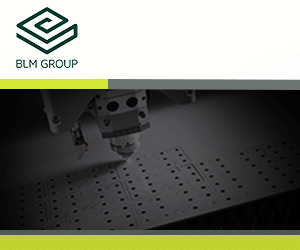Covid Survey: All Manufacturing Shops Are Open
But manufacturing industry respondents in Harbour Results’ second COVID-19 Study predict a 25% drop in revenue. A third of production shops are increasing North American sourcing, and nearly all say they applied for federal funding to support the retention of staff.
Posted: June 18, 2020
Results of a study by Harbour Results, Inc., (HRI) (Southfield, MI) show that every industry and every manufacturing process has been impacted COVID-19 pandemic. However, unlike the April study, all shops surveyed are open and operating at some level. This was the second in a series of three studies aiming to understand how the COVID-19 pandemic is impacting small- to medium-sized manufacturers – both production and tooling.
On average, shops surveyed predict a 25% drop in revenue from the original 2020 forecast. Die builders and die casters are expecting the most significant drop followed by stamping, molding and mold builders. The industry experiencing the highest level of impact is automotive with an operating level of 33% and, on average, automotive shops have laid off 29% of their workforce. This is an improvement from the April study results, which indicated the automotive industry was at an operating level of 28% with 41% laid off.
“Even though the manufacturing industry is operating, it is not out of the woods,” says Laurie Harbour, president and CEO, Harbour Results, Inc. “There are a number of challenges shops will face in the remainder of 2020 and 2021, so strategically managing resources required to build capacity and meet customer needs will be increasingly more critical. In our study, 35% of tool shops and 47% of production shops indicated they are struggling or concerned about the future. This tells me not all shops will survive this crisis. We know there will be a dip in production across all sectors, so shops need to develop business plans that account for best, worst and likely scenarios.”
Headwinds for Manufacturers
As shops look to ramp up operations, operating cash will continue to be critical to maintain viability. According to the May study, more than half of shops indicated that they had less than six weeks of cash on hand, with 67% of tooling and 56% of production shops experiencing payments being stretched or negotiated. Additionally, 32% of respondents were not modeling 13-week cash flows.
According to Harbour, shops that don’t understand their current and future cash situation cannot make informed business decisions. “Shops need to pull levers to strategically contain costs. If you don’t understand your current situation, you will not know how far you need to cut.”
One consideration for cost containment are voluntary and strategic layoffs. The second study indicated that all shops have implemented some level of temporary layoffs and 92% plan to retain their workforce. Additionally, 98% of shops applied for the federal funding (PPP or EIDL loan or CEWS) to support retaining staff.
“We feel strongly that leadership needs to closely look at its workforce and determine who the key players are and be strategic when bringing back employees to better manage cash. Unfortunately, the federal funding is not a competitive advantage for shops and may have created a false comfort level for those who have received the funds,” says Harbour.
Reshoring Creates Opportunities
As a result of the COVID-19 pandemic, many companies are looking to reshore work in an effort to better manage their supply chain and eliminate risk. Nearly 50% of North American tooling shops are quoting on programs historically produced in China and 34% of production shops are increasing North American sourcing.
“This is positive news for the industry – shops need to focus on sales to take advantage of this opportunity while it exisits,” added Harbour.
About the Harbour Results COVID-19 Impact Study:
Harbour Results COVID-19 Impact Study will include three surveys conducted in April, May and August. The results will be analyzed and shared with those companies participating in the study and with industry organizations to help influence the federal government to continue to support the manufacturing industry. The May survey saw more than 250 responses with 52% being tool and die makers and 48% production shops (molders, die casters and stampers).














